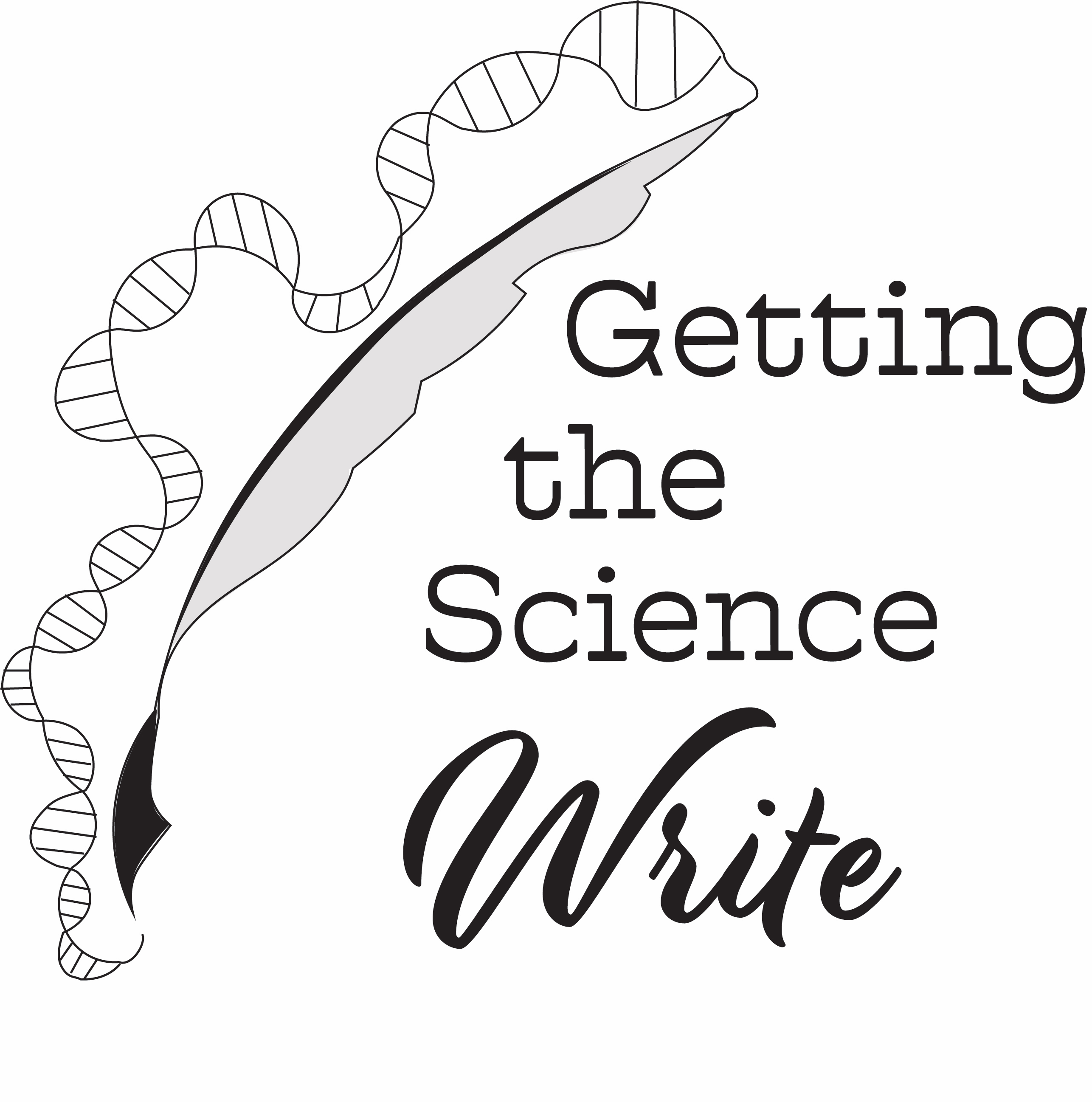Why Science?
Science is magic.
Actually, no, it isn’t. Scratch that. Nope. Definitely not.
But people tend to write science like it’s magic. You have a DNA sample? Fantastic! We’ll throw it into a lab and we’ll use it to track down the murderer. Need to hack into the FBI system? Give the nerd with glasses a hand-me-down PC and…voila! Database breached with just a few keystrokes! No explanation needed, it just works.
Anyone who works in any scientific field will tell you that that’s…not how that works.
But is oversimplification (or hand-waving) of science bad? Not necessarily. There aren’t many people out there who want to slog through extensive explanations of a computer system, or a painfully long and utterly boring explanation of setting and running an SDS gel. The general population will tend to skip over that.
And so we come to the topic of today’s discussion: Why bother including the “nits and grits” of science in stories?
Well, a very handy way is to think of science in fiction as a “magic” system, in which it is a specialized tool, used by a limited number of people that does or does not have rules to use. I recommend reading Brandon Sanderson’s series of essays that cover his first, second, and third laws of magic. In them, he explores the difference between “hard” (rule driven) and “soft” (rule less) magic systems, and much of it applies to the discussion below. I’m not going to delve too deply into his points, as the essays are just a starting point for dialogue, but I will use the same nomencalture system: “Soft science” referring to unexplained or near-mythical science, and “hard science” referring to science that you’d learn in the classroom or on PubMed and would get a Ph.D in.
So BUCKLE UP BUTTERCUPS for a long, first post!
The Argument For “Soft Science”

So, “Soft science,” like “soft magic,” is dependent on having few, if any, rules. Or at least rules that are undefined to the characters. In magic systems, this lack of defined rules is meant to create a sense of wonder. “Soft Science” does something similar, but instead of creating wonder, it creates this sense of “cool.” Consider Star Wars and Star Trek; the technicalities of science are not used as plot points, but as backdrops and worldbuilding. Spaceships, blasters, droids, teleportation platforms, etc, are usually never explained, and most of the time are not even close to feasible according to physics. If these concepts are explained, it is usually by an overly-educated scientist who uses words so erudite that everyone- the characters, the readers, the author- are left to just nod our heads and accept that things “just work,” because we are given practically no explination.
But is it acceptable not to explain what’s behind a ion blaster? Absolutely! If the system is too complicated, people are going to get lost and put the story down. Scientist, non-scientist…everyone. Using “soft science” gets around that issue, making some of the scientific explinations or procedures accessible to a wider readership. And not being limited to exact science lets you come up with some fantastical ideas, like ion blasters or gene modulators. You get to bend the rules because there are no rules, and you have a wider readership/fanbase.
The main question that I recieved from friends and family when I told them I was going to be creating a “How to Write Science” blog was, “shouldn’t the story and characters come first? Why use science in a story if it is going to limit the plot?”
The answer is: YES! Story comes first! Characters come first! You are writing a story, not a thesis. If your characters need to use a DNA sample to single out criminal and you need to drastically speed up the process to keep the plot moving, do it! If you think putting in real scientific explinations will bog down your story, then soft science may be the way to approach that issue.
Another point to add: always assume that your readers are smart. They can (and will) suspend disbelief. Like in Andy Weir’s The Martian, the book starts off with a violent dust storm. In reality, Mars does not have incredibly violent dust storms since it has no real atmosphere, but we can ignore this fact because it adds drama and helps move the story forward. There will be folks who notice it, but if the story and characters are compelling, they will acknowledge that the science doesn’t matter here.
That being said, keep in mind that if your readers are science-oriented, they will notice if you have some glaring innacuracies in your science. I’ve had intense conversations with folks over accuracies and inaccuracies in books/movies…and when I say intense, I mean intense. The other day, I was talking with my brother about the different endings to The Martian, and he passionately explained why cutting a hole in your spacesuit as a form of projection is the stupidest idea, how it would simply make you spin due to where your center of mass is in relation too your hand, and not only would you not go anywhere, you would be losing pressure in your suit. “They specifically explained in the book how stupid that idea was! Why would you do that?!?”
Long story short, there are people who will notice if you get the science really wrong, and it can be detrimental to your credibility. Remember, your readers are smart. You can only pull the wool over their eyes for so long before it starts to itch and they rip it off.
The Argument for “Hard Science”

Now, the “Hard Science” system is the one with hard and fast rules. For “hard magic systems,” you have to determine what the magic can do, what the magic can’t do, and what recourses the magic uses up. For “hard sciences,” that has already been done for you. We know how gravity works, and even have equations to caltulate the exact force of gravity exerted on a given mass. The Martian is one of the best examples of a book relying on “hard science,” being so scientifically accurate to the point where NASA helped Andy Weir write the most current version of the book.
Now, I love “hard sciences” (hence the blog), and the reason boils down to one word:
Limitations.
Okay, I sound like I am flip-flopping my arguments here because I just talked about the benefits of avoiding limitations, but bear with me:
Say you had all of the Legos in the world at your fingertips (An engineer’s dream). You had every piece that you needed to build a spaceship. It may take some digging, but you will find every piece that you need and lo-and-behold, you have built the spaceship of your dreams! And everyone will look at your work and go, “Yep. That’s a spaceship!”
Let’s change this up a little and switch out that ungodly amount of Legos with a basic Lego set. For kicks and giggles, let’s say it’s a Lego fire truck set. You have the instructions for the fire truck, but you really want to build a spaceship. So you build that spaceship, but you have to use wheels as engines, or the hose as a main link. You step back from your project, and it looks unique. New. Unexpected. It’s still a spaceship, but it’s like no spaceship you’ve seen before.
(There are probably some Lego lovers out there outraged at the idea that too many Legos could be a bad thing. I am so so so so so so sorry! I love you, and am sending you imaginary Legos as an olive branch!)
The analogy can be applied to writing “hard science” stories, and is something that the engineers in my life have talked about: having a box to work in forces you to think outside the box. It forces you to avoid tropes or overused plots. It provides you new tools, ideas, and solutions to work with in your writing. And it give you, the author, credibility.
Let’s go back to The Martian as an example: every problem that Watney has to overcome are real problems that would come up! He needs to make food, or he’s going to die. But first, he has to make water. So what does he do?
He uses hydrazine to produce hydrogen gas, which he then uses to combine with oxygen to make water. In theory, it would work!
(Would exposing yourself to hydrazine like that actually kill you in real life? Yes, but again: suspension of disbelief for the sake of plot comes into play here).
The other main argument, and one that I think is important to touch upon here is: Who reads Sci Fi stories?
…Nerds.
Who are nerds?
…Scientists.
Yeah. Yeah, we’re nerds. Dang proud of it too. Many scientists were most likely inspired to explore science when they were younger because of the SciFi books they once read. You can’t get nerdier than that.
And even if you don’t write in the realm of Science Fiction, there is still a good chance that a scientist or science-lover will pick up your book. If you want to write a story where accurate science is part of the tools that the characters use (and is a major plot point), do your research! As touched upon in Brandon Sanderson’s essays, having unexplainable science solve a major conflict in your story is going to feel like a deus ex machina and will be unsatisfying (“Aha! I solved the crime using science!” What techniques did you use? “Science!” Okay, but how!?!). Using hard, explainable science to solve the major conflicts will feel far more satisfying and believable because your characters will be utilizing previously learned tools and knowledge (“Aha! I solved the crime by duplicating his DNA with PCR, running it against the culprit’s DNA on a gel, and discovering that it matched!” Brilliant!).
Now, on the flipside, when you use “hard science” in your work, you will most likely have to explain the science. You can’t really get around it: if you want to prove that you have done your homework, you need to tell us what you and the characters know. And you need in a way that is both clear to the reader and not patronizing. This tends to be hard for many writers to accomplish- screenwriters, novelists, video game writers, etc. because there is an overwhelming amount of scientist characters who just talk down to people; I will cover some ways to avoid this in a future post. (Spoilers: write like your readers are smart!)
So, Moral of the Story?
Neither “soft” nor “hard” science is necessarily better than the other. If you look at classic SciFi books, a lot of them are soft science based. Like Jules Verne’s Journey to the Center of the Earth: the whole concept of the title is just not possible. And the idea that there is a prehistoric world beneath our crust is… well, to call it innacurate is a bit of an understatement. But it is still a classic! If science is not a key piece in your story, then there is very little reason to pour over pages and pages detailing Coloumb’s Law or Van der Waals forces.
The reality is that you will probably use a mix of the two systems, because as mentioned before, plot and characters come first, and both systems have their pros and cons. Here on “Getting the Science Write,” we will be emphasising “hard sciences,” but we also understand that you may have to “magically handwave” some explinations, or exagerate a scientific phenomena to keep the plot rolling.
But “hard science” can be a fascinating tool for you and your characters (not only for SciFi genre)! Start looking at science topics today and ask how to incorperate that in you plot. See what discussions there are in the science community and do a “what if” scenario from those discussions. You would be surprised at the number of unanswered questions there are in science! How does Déjà vu work in the brain? Science shrugs. What would happen if we successfully engineered a completely new viable species with genomic techniques? Science shrugs harder. How does ball lightning work? Science shrugs, but also slips you a plethora of plausible theories for you to look through.
Take the time to show that you have done your research (when necessary); your readers will appreciate it, even if it is just having the correct equation for a small chemical reaction or using the correct acronyms. You will build credibility. You will please readers. You will look increadibly clever.
And always remember the number one rule: your readers are smart.
Author’s Notes
(While people tend use “soft” and “hard” sciences to distinguish between social vs math-based sciences, that’s not what we’re talking about in this post. “Soft” simply refers to having no hard-and-fast rules to the science in a given story).
